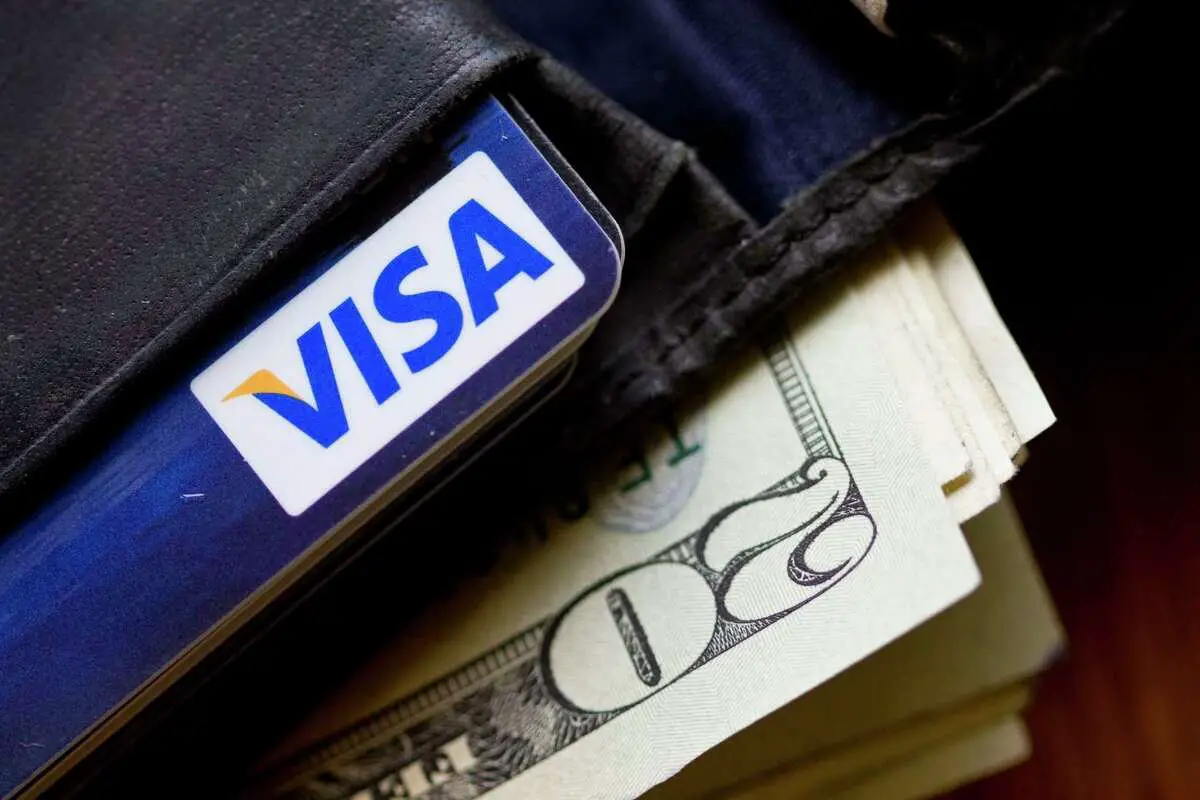Managing your finances during unpaid leave can be challenging, but with the right strategies, it’s possible to navigate this period smoothly. Wondering how to manage finances during unpaid leave? Don’t worry – we’ve got you covered. In this article, we’ll delve into practical tips and effective techniques to help you maintain financial stability while you’re temporarily without income. Whether you’re facing a planned sabbatical or unexpected circumstances have led to unpaid leave, these insights will empower you to take control of your finances and alleviate any financial stress. Let’s dive in!
How to Manage Finances During Unpaid Leave
Unpaid leave can be a challenging time for many individuals and families. The sudden loss of income can create significant financial stress and uncertainty. However, with careful planning and proactive financial management, it is possible to navigate through this period with greater confidence and stability. In this article, we will explore various strategies and tips on how to manage your finances during unpaid leave.
Create a Budget and Track Your Expenses
One of the first steps in managing your finances during unpaid leave is to create a detailed budget. Start by assessing your current financial situation and determining your essential expenses such as rent or mortgage payments, utilities, insurance, food, and transportation. This will give you a clear picture of your baseline expenses that must be covered during your unpaid leave.
Once you have identified your essential expenses, it is important to track your spending carefully. Consider using budgeting apps or spreadsheets to monitor your income and expenditures. By keeping a close eye on your finances, you can identify areas where you can cut back and make necessary adjustments to ensure your money lasts throughout your unpaid leave.
Explore Assistance Programs and Benefits
During your unpaid leave, it is crucial to take advantage of any available assistance programs or benefits to supplement your income. Research and determine if you qualify for government assistance programs, such as unemployment benefits or temporary financial aid. These resources can provide additional financial support during your unpaid leave and help alleviate some of the financial burdens.
Additionally, check if your employer offers any benefits or programs specifically designed to support employees during times of unpaid leave. Some companies may have emergency funds, grants, or loans that can provide temporary financial relief. Reach out to your HR department or employee resources to inquire about such programs and understand the application process.
Review and Adjust Your Insurance Coverage
During unpaid leave, it is essential to review and adjust your insurance coverage to ensure you are adequately protected without overpaying for unnecessary policies. Evaluate your health insurance, car insurance, and any other coverage you may have. Consider adjusting your coverage levels or switching to more cost-effective options if possible.
Additionally, if your employer provided life or disability insurance, understand how the unpaid leave affects your coverage. Some policies may continue during the unpaid leave period, while others may require additional payments or adjustments. It is crucial to have a clear understanding of your insurance coverage to avoid unexpected financial burdens.
Explore Supplemental Income Opportunities
Finding ways to generate supplemental income during your unpaid leave can significantly help alleviate financial strain. Consider exploring part-time job opportunities or freelance work that can provide additional income streams. This could include online gigs, tutoring, or utilizing your skills and expertise in a particular field.
Furthermore, you can explore the sharing economy and consider renting out any unused space or belongings to generate extra cash. Platforms like Airbnb, Turo, or even selling items on online marketplaces can be viable options for generating income during your unpaid leave. Be creative and open-minded in finding opportunities that can help boost your finances.
Reduce Non-Essential Expenses
During unpaid leave, it is crucial to cut back on non-essential expenses to stretch your financial resources. Review your current spending habits and identify areas where you can reduce or eliminate unnecessary costs. Here are some suggestions to get you started:
- Evaluate subscription services and cancel those you can live without.
- Minimize dining out and prioritize home-cooked meals.
- Reduce entertainment expenses by exploring free or low-cost activities.
- Save on utilities by turning off lights, unplugging unused electronics, and adjusting the thermostat.
- Consider negotiating bills or switching to more affordable providers.
Every small expense reduction can make a significant difference in preserving your financial stability during unpaid leave.
Communicate with Creditors and Service Providers
If you anticipate difficulties in meeting your financial obligations during unpaid leave, reach out to your creditors and service providers to discuss potential solutions. Many companies are willing to work with individuals facing temporary financial hardships. They may offer payment plans, reduced rates, or temporary relief to help you manage your expenses.
It is crucial to be proactive and communicate your situation openly. Explain your circumstances and demonstrate your willingness to meet your obligations once your unpaid leave ends. By establishing open lines of communication, you can alleviate some financial stress and find workable solutions that ensure your financial well-being.
Tap into Emergency Savings or Emergency Funds
Having an emergency fund is always a prudent financial strategy, and unpaid leave is a situation where it can be incredibly valuable. If you have an emergency fund, consider using it to cover essential expenses during your unpaid leave. However, be mindful of your fund’s limitations and create a plan to replenish it once you’re back to work.
In some cases, your employer may have emergency funds or grants specifically designed to support employees during challenging times. Reach out to your HR department to inquire about any such options. These resources can provide a safety net and bridge the income gap during your unpaid leave.
Seek Professional Financial Advice
If you find yourself overwhelmed or uncertain about managing your finances during unpaid leave, consider seeking professional financial advice. Financial advisors or certified financial planners can provide personalized guidance based on your unique circumstances. They can help you develop a comprehensive financial plan, make informed decisions, and navigate through the challenges of unpaid leave.
Research reputable financial professionals in your area or consider utilizing online platforms that connect individuals with certified advisors. During your consultation, be transparent about your unpaid leave situation and communicate your specific financial concerns. A financial advisor can offer valuable insights and strategies to help you manage your finances effectively.
Stay Positive and Focus on Personal Development
Lastly, it is essential to maintain a positive mindset and focus on personal development during your unpaid leave. While financial challenges can be stressful, it is also an opportunity for personal growth and learning. Use this time to acquire new skills, explore hobbies that can generate income, and invest in self-improvement.
Consider seeking free or low-cost educational resources to enhance your knowledge and skills. Online courses, webinars, and workshops can provide valuable insights and potentially open new doors for career opportunities. By focusing on personal development, you can emerge from your unpaid leave period stronger and more resilient.
In conclusion, managing finances during unpaid leave requires careful planning, proactive measures, and open communication. By creating a budget, exploring assistance programs, reducing non-essential expenses, and seeking additional income opportunities, individuals can navigate through this challenging period with greater financial stability. Remember to stay positive, seek professional advice if needed, and use this time to invest in personal growth. With the right strategies and mindset, managing finances during unpaid leave can be a stepping stone towards a more secure financial future.
Day 4: Turn Unpaid Leave Into Paid Leave
Frequently Asked Questions
Frequently Asked Questions (FAQs)
Q: How can I manage my finances during unpaid leave?
A: Managing your finances during unpaid leave can be challenging, but with careful planning and budgeting, you can navigate through this period. Here are some tips:
Q: Should I inform my creditors and utility companies about my unpaid leave?
A: It is advisable to inform your creditors and utility companies about your unpaid leave. Many companies offer flexible payment options or temporary relief programs that can help you manage your bills during this time.
Q: Is it a good idea to set up an emergency fund before going on unpaid leave?
A: Yes, setting up an emergency fund is always a good idea. Having a financial cushion can provide peace of mind during unpaid leave and help cover unexpected expenses that may arise.
Q: Can I apply for government assistance or benefits during unpaid leave?
A: Depending on your country and eligibility criteria, you may be able to apply for government assistance or benefits during unpaid leave. Research the available options and requirements to determine if you qualify.
Q: How can I reduce my expenses during unpaid leave?
A: To reduce expenses during unpaid leave, consider the following:
– Cut back on non-essential spending.
– Look for opportunities to save on utilities, groceries, and other regular expenses.
– Cancel or pause any subscriptions or memberships that are not essential.
Q: Can I seek additional part-time work during unpaid leave?
A: Yes, seeking part-time work during unpaid leave can help supplement your income. Explore opportunities in your field or consider freelance work that aligns with your skills and interests.
Q: Should I consider applying for a short-term loan during unpaid leave?
A: Applying for a short-term loan should be carefully considered as it may come with high interest rates. Only consider this option if you are confident in your ability to repay the loan promptly and if it is necessary to cover essential expenses.
Q: How can I ensure a smooth transition back to regular employment after unpaid leave?
A: To ensure a smooth transition back to regular employment after unpaid leave, keep the following in mind:
– Stay connected with your professional network.
– Refresh your skills if necessary.
– Communicate with your employer about your availability and any updated requirements.
Final Thoughts
During unpaid leave, managing finances can be challenging. However, there are practical steps you can take to navigate this situation. Firstly, create a budget that outlines your expenses and prioritize essential costs. Secondly, explore options such as unemployment benefits or temporary work to supplement your income. Additionally, consider cutting back on non-essential spending and finding ways to save money, such as cooking at home or canceling unnecessary subscriptions. Lastly, it is crucial to communicate with creditors and lenders to discuss possible payment arrangements and flexibility. By actively managing your finances during unpaid leave, you can ensure financial stability and minimize any potential hardships that may arise.



